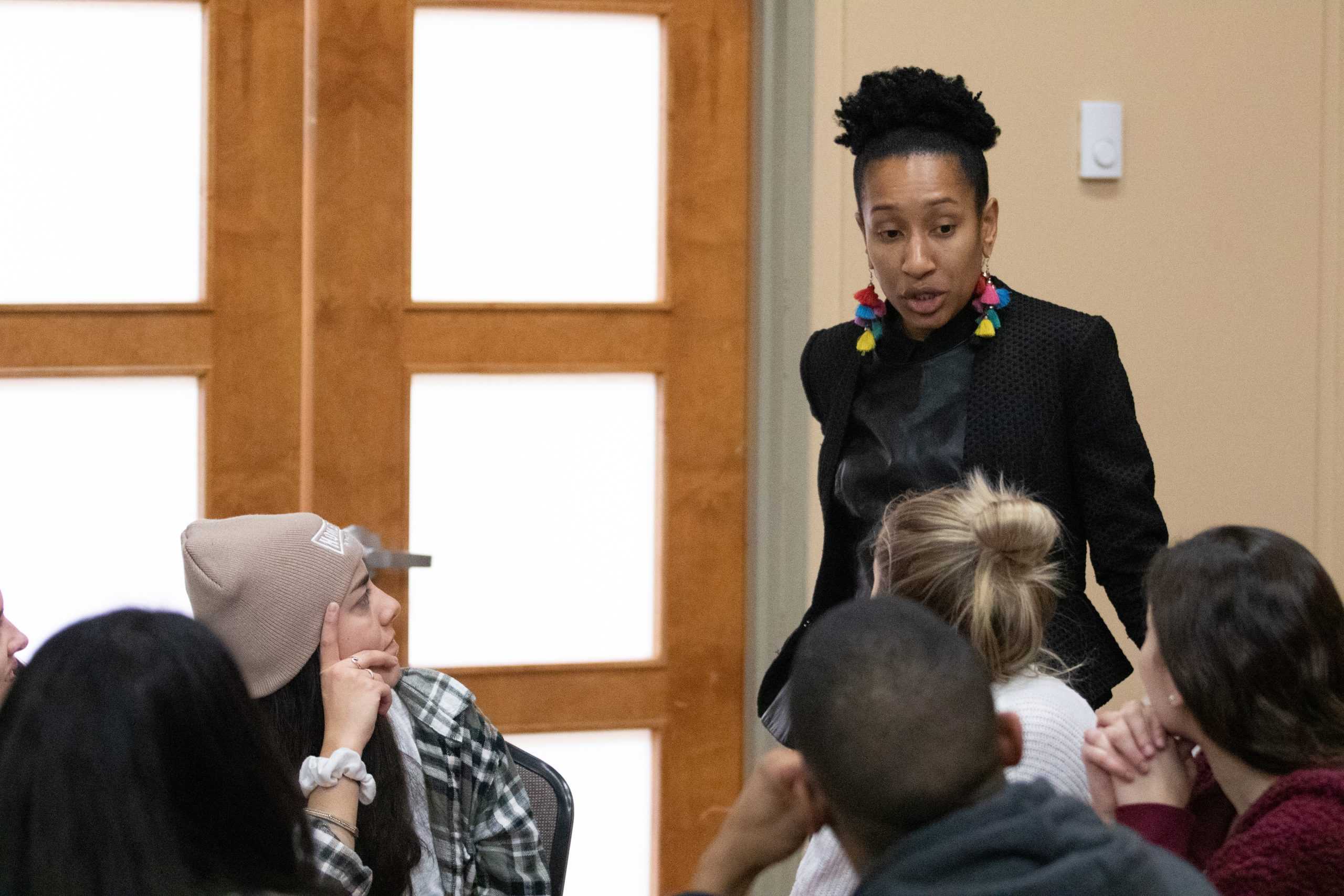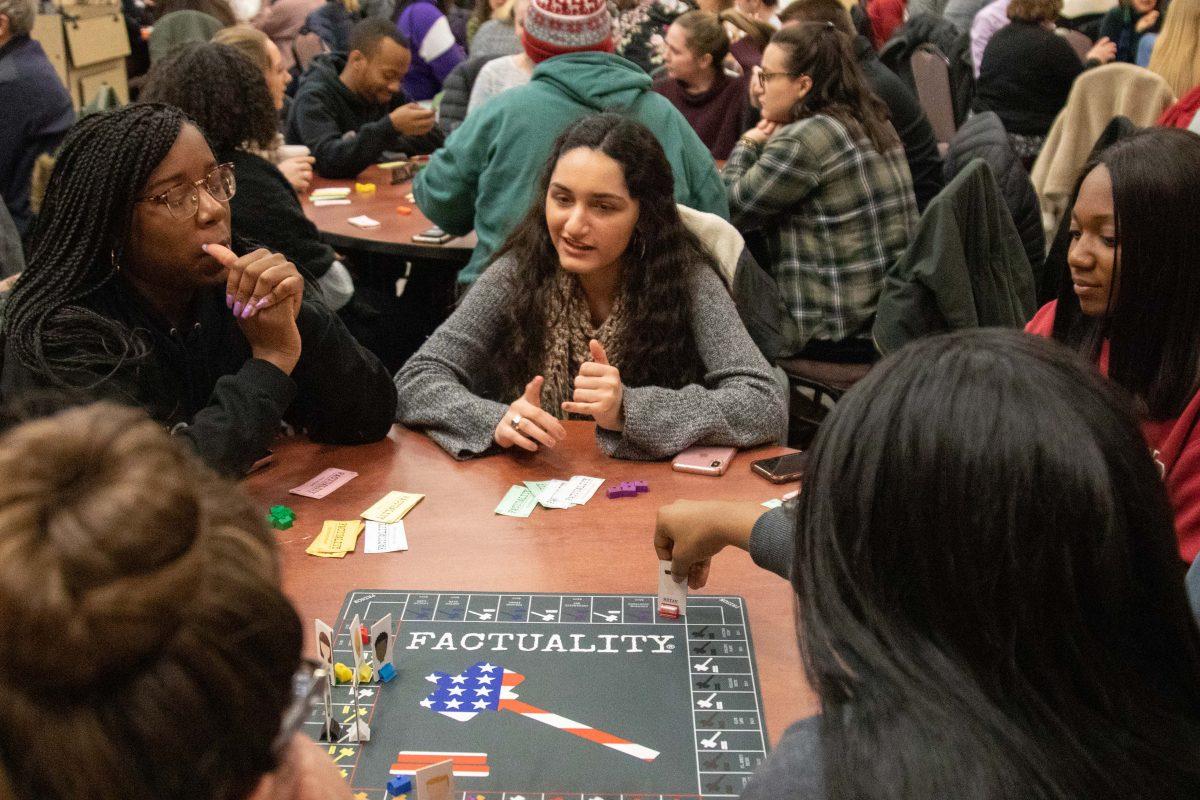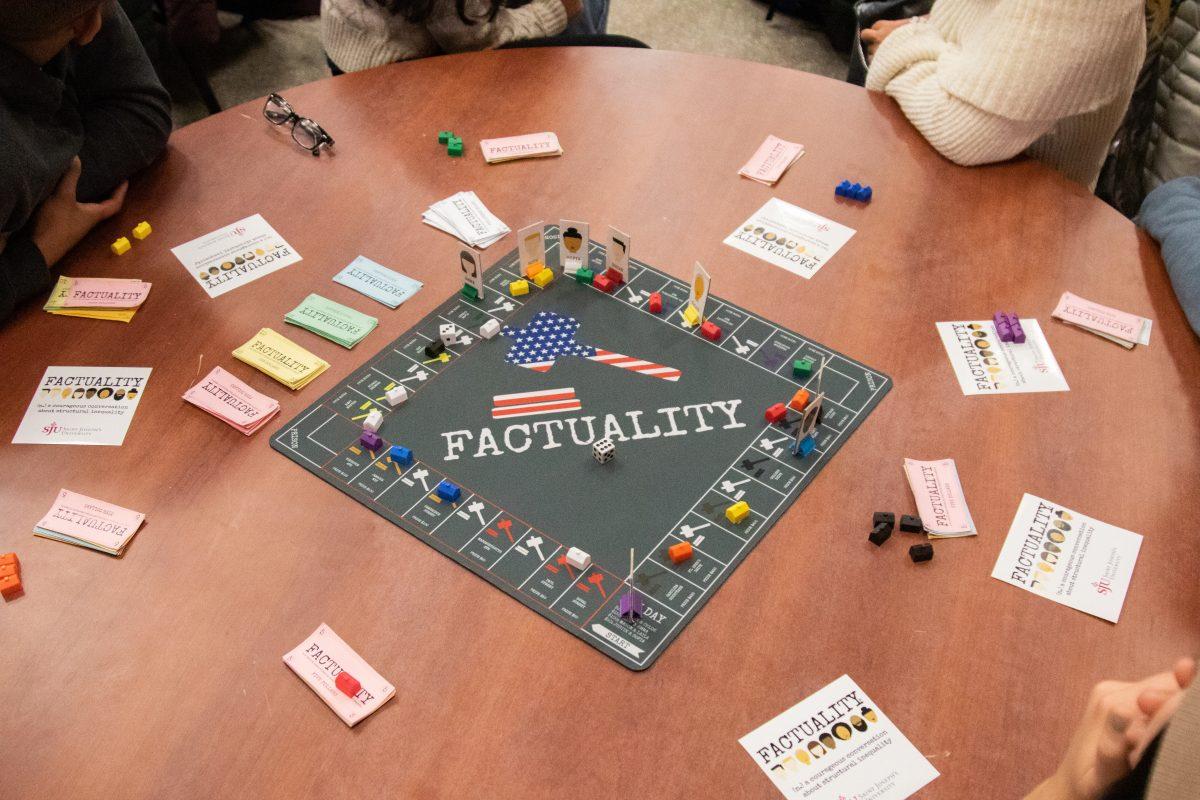Board game provides fresh take on ongoing conversation
Sam Britt ’20 and Alysa Bainbridge ’21 co-wrote this story
Three sessions of Factuality, a board game designed to facilitate a conversation about diversity, were attended by students, faculty and staff today in Campion Student Center.
Each player, sitting in groups of eight, was assigned a character that represented different races, genders, sexual orientations, faiths and classes. In a Monopoly-style game, each character was given a different amount of money to start with, a reflection on income inequality in the United States.
Natalie Gillard, the creator of Factuality, came up with the idea in 2015 after she was challenged to create a training that talked about diversity in a fresh way.
“I was trying to find the best game possible and I couldn’t find what I was looking for, so I built it,” Gillard said in an interview with The Hawk. “I decided brevity and having something experimental would be key.”
Gillard, who facilitated the 90 minute game, periodically announced facts regarding race and socioeconomic status that affected the actions of the characters. For example, after reading a statistic about the gender wage gap, all of the female characters had to give the male characters 15 dollars.

The characters ranged from Brian, an Asian man who has the highest income in the game, to characters like Mason, an African American man, Layla, an African American woman who identifies as transgender and Sofia, a LatinX woman.
Janée Burkhalter, associate professor of marketing and Special Assistant to the Provost for Inclusion and Diversity, had been following Factuality online and had the idea to bring the activity to St. Joe’s.
“I hope that people learn about people who are different from [themselves],” Burkhalter said. “I hope that it helps us continue the conversation that started last semester.”
Ruben Johnson ’20 also said that the Factuality event comes at a time when diversity and inclusion is a prime topic of discussion on campus. This is a result of an incident that occurred last September in which a racial slur was left on a student’s dorm room door.
“It would have been better to have events like this prior to [the incident] but it makes sense to have it now,” Johnson said. “It is beneficial for our community to be here [and] to learn about the importance of being together.”
Natalie Walker-Brown, the director for Student Inclusion and Diversity, said that she appreciated how the game brought different people together and wasn’t exclusive to just students or faculty.
“It gave us all a chance to embody, just for a little bit, the experience of someone else,” Walker-Brown said. “It was hard to take on a new identity and see your own identity manipulated in the game. ”

Last night there was a separate session of Factuality held exclusively for athletes and their coaches. Asia Whittenberger ’22, a player on the women’s soccer team, attended the Factuality session last night
“A lot of people look at athletes as leaders on campus,” Whittenberger said. “If we can understand structural inequality, we can use our platform to help spread the information.”
At the end of the game, Gillard invited participants to come up and speak about their personal experiences in their small groups.
James Jackson, assistant director of Undergraduate Admissions, played Emma, a female Jewish woman in the game and said during the open forum that it opened his eyes to different stereotypes.
“Even though that’s not a stereotype that was put upon me as a black gay man, being a white Jewish woman and realizing that I was automatically the banker, it really offended me,” Jackson said in the open forum. “It showed me that even outside myself there are ways that stereotypes can be harmful and hurtful.”
Ron Dufresne, associate professor of management and president of Faculty Senate, who played the game, said the exercise epitomizes one of St. Joe’s core values.
“What did surprise me was the degree to which it triggered emotional reactions in an hour of playing,” Dufresne said. “It’s powerful to take the perspective of someone not like me, and even the act of taking the perspective through this experience is the ideal that we have, being men and women with and for others.”














































